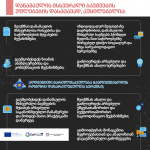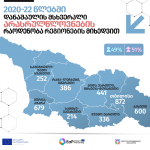The project aimed to research the best practices, methods, and tools to help delinquent children in re-socializing and provide guidelines to the involved stakeholders, including the teachers, psychologists, officers from the National Inspectorate of Probation, police officers and volunteers. To achieve the latter objective, Corneliu did comprehensive and interdisciplinary research of the most effective ways of re-socializing justice-involved children. To explore the best practices, Corneliu undertook three study visits in Romania, Czech Republic, and Germany. During these visits at the Buzias Educational Center, Czech Probationa and Mediation Service, IRZ, Bruke, Don Basco Youth Center, Youth Detention Centre in Dusseldorf, he held discussions with more than 40 field experts. The interviews and in-depth discussions played a crucial role in developing a final publication offering the best role-models targeted on the Moldovan Justice system.
The project produced a research publication introducing international practices on general incentives and mitigation measures of delinquent acts. The book is a guide for the policemen, probation officers, psychologists, pedagogues, and social workers to help juveniles involved in criminal activity. Corneliu published 800 copies of the book and distributed it among the education directorates, policemen, and probation officers across the country. Thus, the guidelines were also shared with the Youth Centers in Chisinau and Social Assistants from Chisinau and Criuleni. Overall, he covered six Moldovan cities, including Chisinau, Balti, Cahul, Gagauzia, Criuleni, Hîncești.
Research paper ‘Juvenile Delinquency Prevention Guidelines (in Russian)’:










